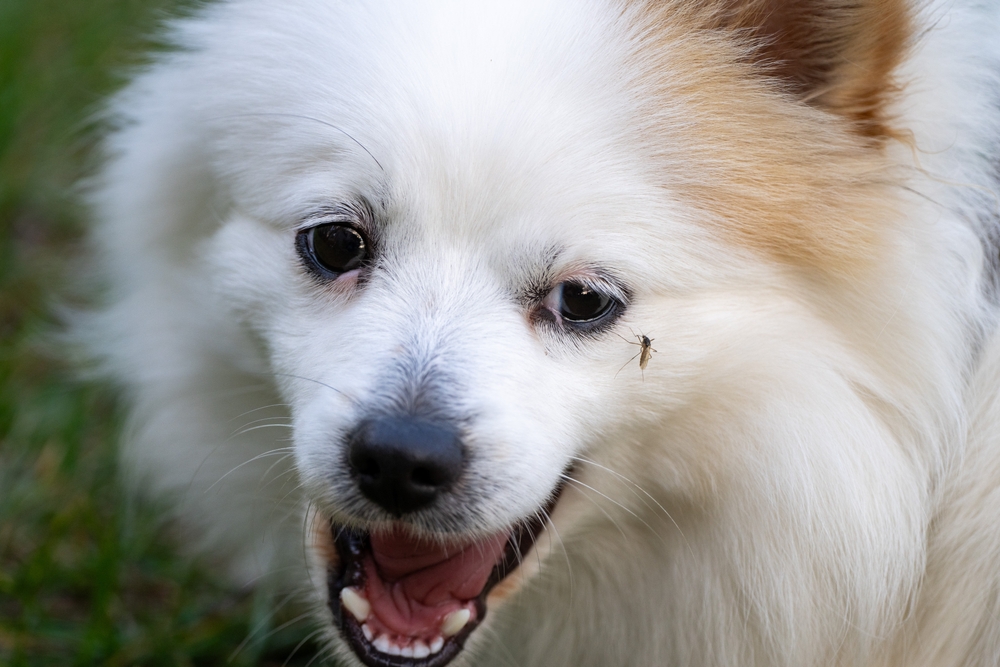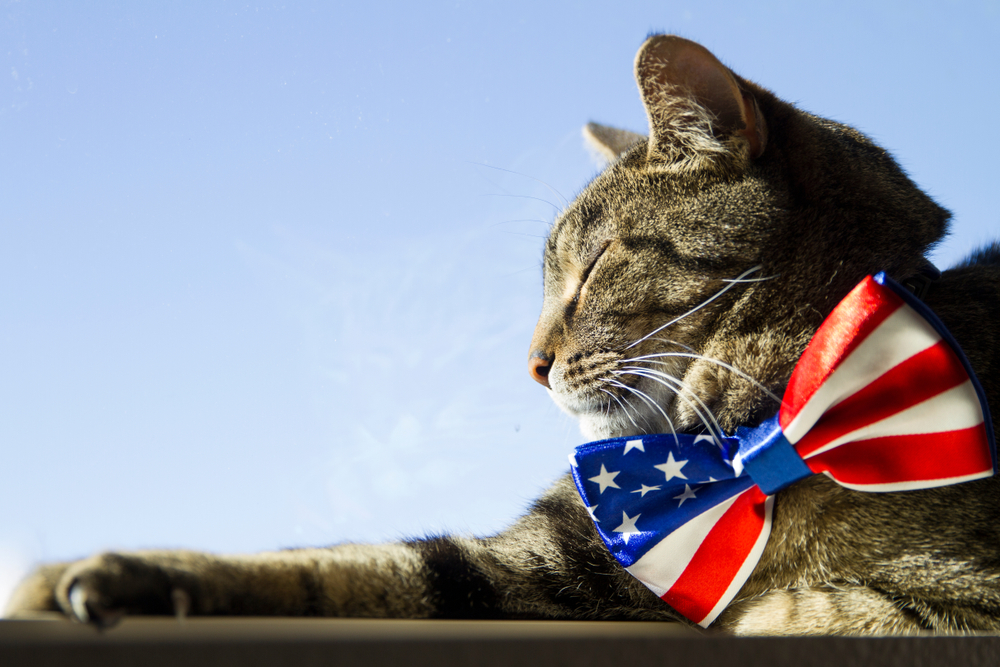As the summer days and nights heat up, your trusted Lytle Veterinary Clinic team is preparing for another busy season. And while we love seeing you and your pet, we’d prefer it not be for preventable summer illnesses, injuries, and emergencies. While July Fourth celebrations bring joy and excitement, they can also endanger your beloved pet. Follow these tips to ensure your pet stays safe this Independence Day so they can enjoy the dog days of summer and beyond.
Beat the heat, protect your pet
Heat is one of the most commonly underestimated summer pet safety threats. While you may feel comfortable in warm weather, pets cannot sweat and must rely on panting to control their body temperature—making them susceptible to heatstroke (i.e., hyperthermia). Once heatstroke begins, the condition can rapidly become fatal or permanently injure an affected pet’s internal organs. Keep your pet cool and comfortable by staying attentive to their needs. This includes:
- Providing plenty of fresh water and shade, especially during peak sun hours
- Avoiding vigorous exercise during the hottest parts of the day, walking during the early morning or late evening
- Monitoring your pet for early overheating signs, including heavy panting, drooling, lethargy, and mental dullness
- Keeping your pet with you. Never leave your pet in a parked car. Despite cracking the windows, interior temperatures in a parked car can soar to deadly levels in as few as 10 minutes.
If your pet is in distress, immediately take them to a cool location, wet them down, and contact our Lytle Veterinary Clinic team for instructions. For an in-depth look at heatstroke in pets, check out our previous article.
Calm your pet during the fireworks frenzy
Fireworks and other loud summer sounds can terrify pets with noise aversion (i.e., sensitivity), causing them to experience intense panic and stress. If your pet is sensitive to sudden, loud, or unfamiliar noises, make a plan now that includes:
- Talking to our veterinarian about anti-anxiety medications and supplements
- Creating a safe haven for your pet, away from the noise, bright lights, and exterior-facing doors through which they could easily escape
- Installing pheromone diffusers to create a calm and comforting atmosphere
- Playing calming music and providing positive distractions, such as food-stuffed toys or pet puzzles, to preoccupy your pet’s mind
While celebrating July Fourth without your four-legged friend by your side may not be as fun, being outside during fireworks can cause pets to panic and run away. Plan to exercise your pet during the late afternoon so that they can rest safely indoors during the big show.
Make a splash by practicing pet water safety
If your July Fourth plans include pool parties or beach trips, ensure your pet is equipped for their aquatic adventure. Not all pets are natural swimmers and others may fatigue quickly in the water, making them vulnerable to drowning. Pet life jackets provide buoyancy and comfort for new and experienced swimmers alike, but they do not replace the need for continuous supervision. Ensure your pet takes frequent breaks and provide them with fresh drinking water to prevent dehydration. Finally, rinse your pet’s fur after swimming to remove chlorine, salt water, pool chemicals, or debris, which can irritate their skin.
“Bone” appetite or bona fide disaster? Avoid these pet-toxic cookout favorites
While we feast on barbecue, potluck classics, and campfire favorites, many summer dishes can be disastrous for pets. Avoid food-related emergencies, such as toxicity, choking, and internal injuries, by keeping harmful items out of reach, supervising your pet around food, and instructing guests not to feed your pet from their plate. The most common summer food hazards include:
- Meat bones, grease, and fat
- Cookware and food wrappers (e.g., tongs, skewer sticks, aluminum foil, corncob holders)
- Onions
- Grapes
- Raisins
- Chocolate
- Corn on the cob
- Sugar-free items containing xylitol
- Macadamia nuts
Although nontoxic foods may seem safe, any unfamiliar food can trigger gastrointestinal (GI) upset and in some cases, severe illness such as pancreatitis. Play it safe this summer by keeping your pet on their regular diet and keeping dangerous foods and related items out of reach. If you know or suspect your pet has ingested something harmful, immediately contact our veterinarian or the nearest emergency veterinary center.
Tell fleas and ticks to bug off with veterinary-approved preventives

Alongside summer’s welcome weather and events come uninvited parasites such as mosquitoes, ticks, and fleas. Protect your pets by using a veterinarian-approved parasite preventive to ensure these pests can’t transmit harmful or deadly diseases. Be diligent about checking your pet for ticks after any outdoor excursions, especially if they include wooded or grassy areas. If your pet is unprotected, ask your veterinarian which parasite preventive products are best for your furry pal’s lifestyle and risks, and whether a heartworm test is necessary before beginning your pet’s parasite prevention plan.
Ensure your pet’s July Fourth experience is full of fun, not fear, by protecting them from common summer hazards. If your plan includes talking to our veterinarian about anti-anxiety medications or refilling your pet’s parasite preventives, don’t wait until July 1. Contact our Lytle Veterinary Clinic team or request an appointment online to ensure you and your pet have an unforgettable summer for all the right reasons.

